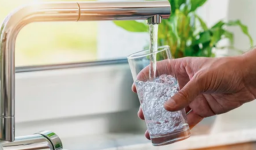

Water is a vital resource in our daily lives—used for drinking, cooking, bathing, cleaning, and laundry. However, not all water is created equal. One of the most common issues households face is the presence of hard water. Hard water contains high levels of dissolved minerals, particularly calcium and magnesium. While these minerals are not harmful to human health, they can have numerous negative effects when used consistently in day-to-day activities. Understanding the disadvantages of using hard water on a daily basis can help homeowners make more informed decisions about water treatment solutions.
In homes where hard water is a constant issue, many residents turn to a residential hybrid water softener to alleviate the problems caused by mineral-rich water. This type of system combines traditional softening methods with modern filtration, offering an efficient solution that removes minerals while improving water quality. Investing in such a system can significantly enhance the lifespan of appliances, maintain plumbing systems, and improve the overall comfort and hygiene of your home environment.
One of the most immediate and expensive problems caused by hard water is the buildup of scale within plumbing systems. Calcium and magnesium deposits can accumulate over time, narrowing pipes and reducing water flow. This buildup can lead to clogs, corrosion, and even pipe failure. Over time, it reduces the efficiency of the entire water distribution system within your home. Plumbers are often called out to deal with issues that stem directly from hard water deposits, leading to recurring maintenance costs and potential replacements.
Hard water doesn’t just affect your pipes—it also takes a toll on appliances like washing machines, dishwashers, water heaters, and coffee makers. The mineral buildup can reduce energy efficiency by forcing appliances to work harder, using more electricity or gas in the process. In water heaters, for instance, scale buildup acts as an insulating layer, making it harder for the water to heat and increasing energy consumption. Over time, appliances can become damaged beyond repair, shortening their lifespan and leading to costly replacements.
If you've noticed that your soaps or shampoos don’t lather well or your clothes don’t feel clean after washing, hard water could be the culprit. The minerals in hard water react with soap to form “soap scum,” which not only reduces soap efficiency but also leaves residue on your skin, dishes, and clothing. This means you’ll end up using more soap or detergent than necessary, increasing household expenses and environmental waste. Additionally, fabrics washed in hard water often appear dull, feel stiff, and may wear out more quickly.
Frequent exposure to hard water can have noticeable effects on personal hygiene and health, particularly related to skin and hair. Hard water can leave a film on the skin, preventing natural oils from doing their job and leading to dryness and irritation. People with sensitive skin or conditions like eczema may find that their symptoms worsen with regular use of hard water. Likewise, hair washed in hard water can become brittle, dull, and difficult to manage. Over time, this can lead to increased costs for skin and hair care products as residents try to compensate for the harsh effects of mineral-laden water.
Hard water can leave visible marks on a variety of surfaces including glassware, tiles, sinks, and bathtubs. The mineral deposits dry and leave unsightly spots and streaks, making cleaning more difficult and time-consuming. No matter how much effort you put into cleaning, surfaces never seem to shine when hard water is involved. This becomes especially frustrating in areas like kitchens and bathrooms where cleanliness is paramount.
Using hard water indirectly contributes to environmental harm. Because it reduces the efficiency of soaps and detergents, people often use more products to get desired cleaning results. This increase in consumption contributes to greater chemical runoff into local water systems and more plastic packaging waste. Additionally, the reduced efficiency of appliances and water heaters results in higher energy use, increasing your household’s carbon footprint.
Perhaps the most tangible disadvantage of using hard water daily is the accumulation of costs over time. Whether it’s from higher energy bills, frequent appliance replacements, additional cleaning supplies, or increased soap usage, hard water silently eats into your monthly budget. Many homeowners are unaware of how much more they’re spending because of the water quality in their homes until the expenses start to add up.
Hard water might seem like a minor nuisance at first, but its effects can snowball into significant issues when used daily. From damaging your plumbing and appliances to impacting your skin, hair, and household surfaces, the disadvantages are far-reaching. Fortunately, investing in a residential hybrid water softener offers a comprehensive solution to eliminate hard water problems effectively. These systems not only protect your home infrastructure but also improve your quality of life by providing cleaner, softer water throughout your household. Addressing hard water issues proactively ensures long-term savings, better health, and a more comfortable living environment.
| No comments yet. Be the first. |